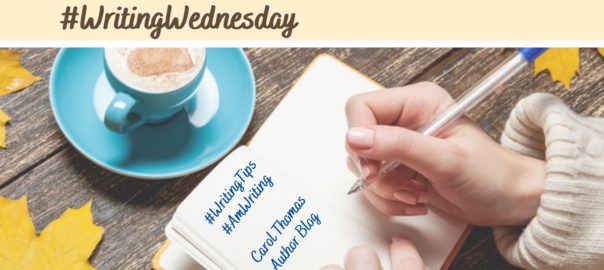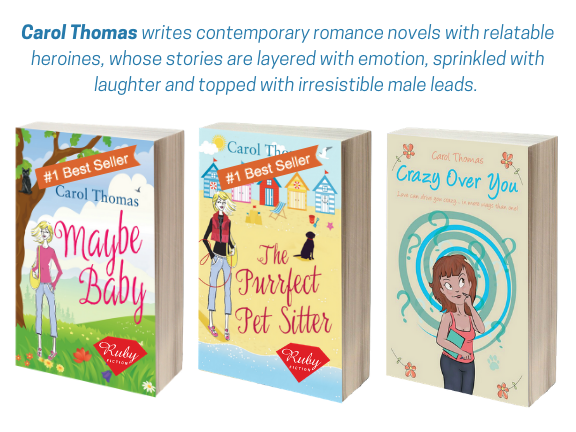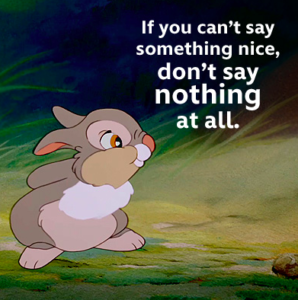5 Short Fiction Exercises to Rescue You from Writer’s Block by Desiree Vilena.
Writing short fiction is, without a doubt, one of my favorite pastimes. However, it’s so much more than that: I’ve found it’s also one of the best ways to sharpen my prose, hone my sense of narrative structure, and liberate my mind when I’m stuck on anotherpiece of writing.
Since I started writing short stories, they’ve become my go-to whenever I can’t seem to make progress on a longer project. Today I want to share some of the short fiction exercises that I use to “unstick” myself, in hopes that they might help you, too! These exercises work particularly well if you have established characters, but if you don’t — or if you need a break from your WIP — feel free to invent some on the spot, or borrow some from another author just for fun. Without further ado, here we go.
1. Write a few hundred words of dialogue:
Writing dialogue used to intimidate me hugely. Somehow I got it in my head that if I couldn’t say the words out loud without them sounding totally stilted, it was bad dialogue. This was before I figured out there’s a reason why I’m a writer, not an actor — and also that dialogue doesn’t need to be Sorkin-esque all the time! When embarking on a short piece in particular, you’re free to write total fluff without worrying too much about where it ends up.
This is why penning a bit of banter is now one of my favorite ways to conquer writer’s block. Most of the time, it’s a nice diversion more than anything: deciding what the characters should discuss, throwing in a few points of contention, and seeing where the conversation leads. But writing dialogue is also a fantastic way to get to know your characters — ideally, it makes you think more deeply about their personalities, opinions, and how they might express these things in dialogue, as well as what they might conceal (intentionally or not).
2. Write on a “question to fall in love”:
Remember the New York Times’ 36 questions to fall in love? Another short-form approach to solving writer’s block (that can also be quite conducive to character development!) is to write a short story based on one of these questions. My personal favorites include “Do you have a secret hunch about how you will die?” and “When did you last cry in front of another person?”, but there are plenty more lighthearted options to inspire you.
Again, it’s great if you can do this with your own characters, but sometimes a question will catch your eye and simply beg for an original story. You might write a flashback scene answering one of the “memory” or “childhood” questions, or a speculative story about the premise of #6 (“If you were able to live to the age of 90 and retain either the mind or body of a 30-year-old, which would you choose?”). If you’re in the mood to write creative nonfiction, you could even try answering one of the questions yourself! Though there are only 36 questions, the ways in which you might respond are endless — and of course, you can always combine this exercise with the dialogue exercise and have your characters answer the questions together (especially if you want them to fall in love).
3. Write a story based on a specific prompt:
Then again, sometimes you want a prompt that tells you exactly what to write. This may be the case if your writer’s block stems from toomuch freedom, rather than not enough. Indeed, this often happens to me when I want to start a new piece, but feel overwhelmed by possibilities. If this sounds like you, too, a prescriptive prompt is the way to go!
The only challenge is choosing the prompt in the first place. Luckily, it’s easy to narrow it down using a plot generator, or by organizing your writing prompts by genre! Still too much choice for you? Take a look at the most recent contest in the sidebar of that directory — this will give you a taster of just five prompts, each with a clear directive, such as “Write about a character putting something into a time capsule.” If you manage to finish your story by the end of the week, you can even submit it to possibly win the contest (a nice little bonus to this creative exercise).
4. Write a revealing dream sequence:
I know what you’re thinking: aren’t fictional dream sequences tough to pull off without lapsing into heavy-handedness? But as with all writing exercises, I’d posit that a dream sequence doesn’t need to be perfectly written — though it’s ideal if you can make it meaningful in some way.
I’ll usually turn to dreams when I’m stuck on character motivations and want to feel them out in an indirect manner. Writing a dream sequence can be almost like a Rorschach test: whatever I include in a dream illuminates what I might need to address more substantially in the text. Whether this is a fear the character needs to overcome, a solution to a problem they’ve been grappling with, or a romantic interest they haven’t yet admitted, such a sequence will almost always give me new material to work with — not to mention it’s another great way to connect with your characters in general!
5. Write a scene between secondary characters:
Romance writers will no doubt be familiar with this one, as it’s one of the best ways to lay the foundation for a sequel. But even outside of romance, I’ve found that taking a break from your main characters to flesh out the supporting cast (just like you’re taking a break from your novel with short fiction!) can be both refreshing andenlightening.
So here’s the final exercise: pick a couple of secondary characters (not necessarily your favorites — whomever you think might interact in an interesting manner!) and write about them. Once more, feel free to combine this with any of the above exercises, or just think about what these secondary characters might be doing while the protagonists are protagonist-ing and run with it.
This exercise is an especially helpful reminder that every character in a novel should be three-dimensional, even if they’re not central to the action! If you start writing a scene between secondary characters and realize you have no idea who they are or what purposes they serve, now is your chance to fix it before you publish your book.
Of course, short fiction exercises can’t remedy every problem you might have, particularly with something as expansive as writer’s block. But in my experience, there’s usually an exercise that will get to the heart of it — whether that’s character uncertainty, plot knots, or simply feeling overwhelmed with the task of writing. The trick is knowing yourself as an author, so you can pick the solution that will work for you.
Desiree Villena is a writer with Reedsy, a marketplace that connects authors and publishers with the world’s best editors, designers, and marketers. In her spare time, Desiree enjoys reading contemporary fiction, writing short stories, and making very slow progress on her novel.




